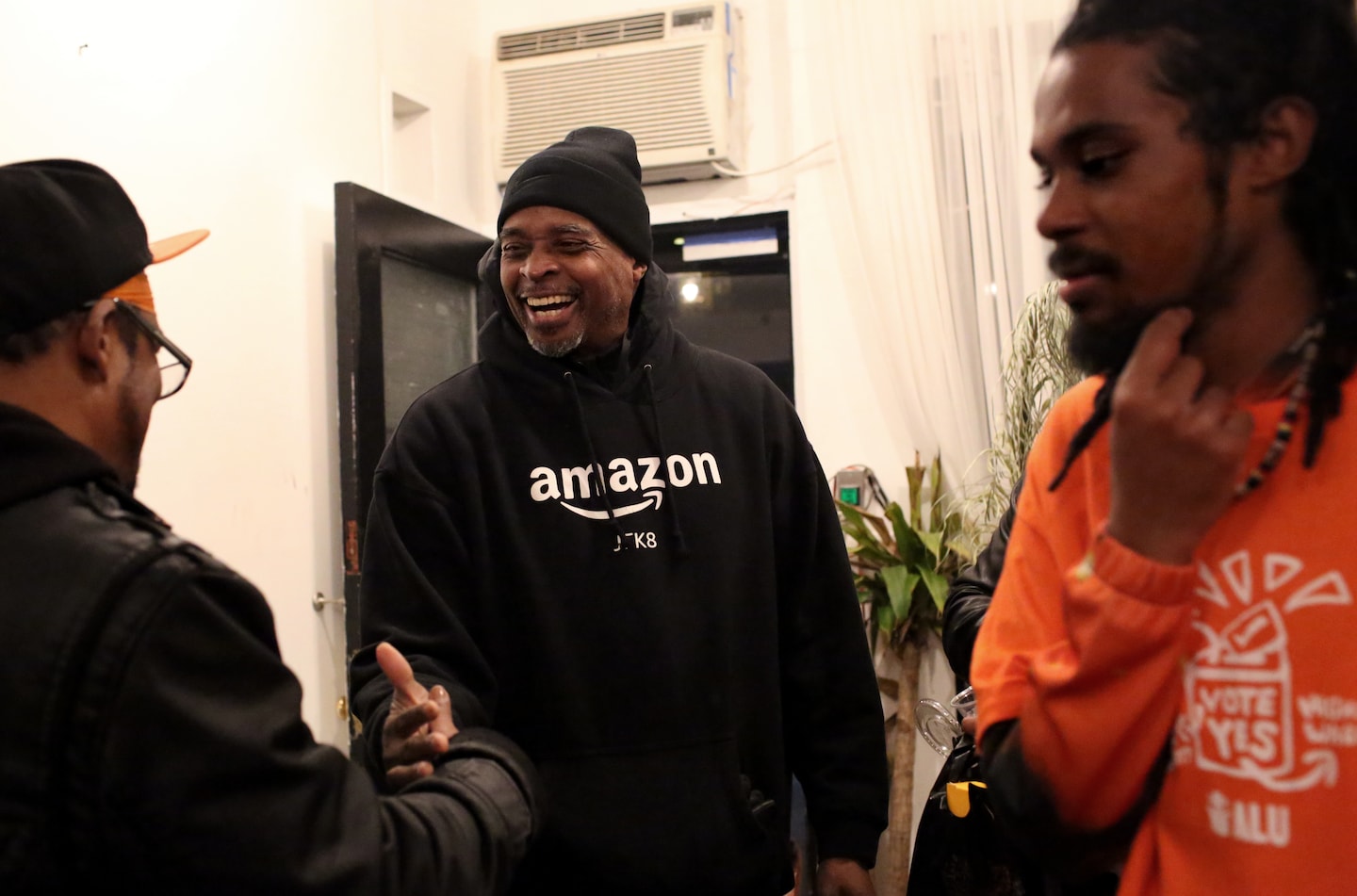An administrative law judge has ordered Amazon to reinstate a worker it “unlawfully” fired in 2020 at a Staten Island warehouse that recently voted to unionize, and to reimburse him for lost wages.
Judge orders Amazon to reinstate fired worker, pay lost wages

Amazon disagrees with the decision and will appeal, according to spokeswoman Kelly Nantel, who said she found it surprising that the NLRB would want any employer to condone such behavior. (Amazon founder Jeff Bezos owns The Washington Post.)
“Mr. Bryson was fired for bullying, cursing at, and defaming a female co-worker over a bullhorn in front of the workplace,” Nantel wrote in an email. She also noted that the incident was widely broadcast on social media.
The protest would dovetail with a grass-roots labor movement led by Bryson, Christian Smalls and other individuals.
Smalls led a March 2020 protest while employed at the same warehouse. He was later fired for allegedly violating quarantine and social distancing directives, according to the NLRB decision. Bryson’s protest took place a week later on April 6. Both men have accused Amazon of retaliating against them for their role in organizing workers, which culminated in a vote to unionize the Staten Island fulfillment center by a vote of 2,654 to 2,131.
The union has filed several unfair labor practice charges alleging Amazon engaged in union-busting activity at the warehouse.
The NLRB, in a separate case, accused Amazon in January of illegally surveilling and threatening workers in Staten Island. It alleged a manager and a security guard tried to confiscate union literature placed in the company’s break room.
In other incidents, according to the NLRB, union officials and a consultant “interrogated” employees about their organizing activities and called union organizers “thugs.” An Amazon spokesperson said the allegations are false.
The NLRB also sued Amazon in federal court over Bryson’s case before voting began at the warehouse, seeking an injunction to reinstate him. A judge hasn’t ruled on the case. But Amazon has used the NLRB’s lawsuit as the basis for an objection against the results of the election.
In its list of objections filed with the federal regulator, the company alleged that the agency’s Brooklyn-based regional office “created the impression” it was supporting the union by filing the lawsuit against Amazon before the vote.
“Delaying the filing of this lawsuit until the eve of the election improperly influenced employees’ perception of Amazon mere days before they were to vote,” Amazon wrote in its objections.
At the time, the NLRB said all its “enforcement actions against Amazon have been consistent with (its) congressional mandate.”
Amazon is seeking to defeat the successful union vote by filing the objections, which the federal regulator will consider at a hearing.
The judge’s decision describes a chain of events in which another employee got in an argument with Bryson, which was filmed and posted to social media. Green came to the conclusion that Bryson did not initiate the argument and that evidence presented in his case does not support the idea that he engaged in conduct warranting termination.
In a transcript attached to the decision, both individuals spout profanities and insults at each other. Bryson was fired after the altercation, while the woman was not.
Disciplinary records indicate Amazon generally does not fire people for engaging in conduct similar to Bryson’s, according to Green’s decision.
“The record also contains considerable evidence that the Respondent’s stated reason for discharging Bryson was mere pretext for its true discriminatory motive,” the judge’s opinion reads, noting that the company’s investigation focused primarily on Bryson’s behavior while letting the other employee off the hook.
Rachel Lerman contributed to this report.






